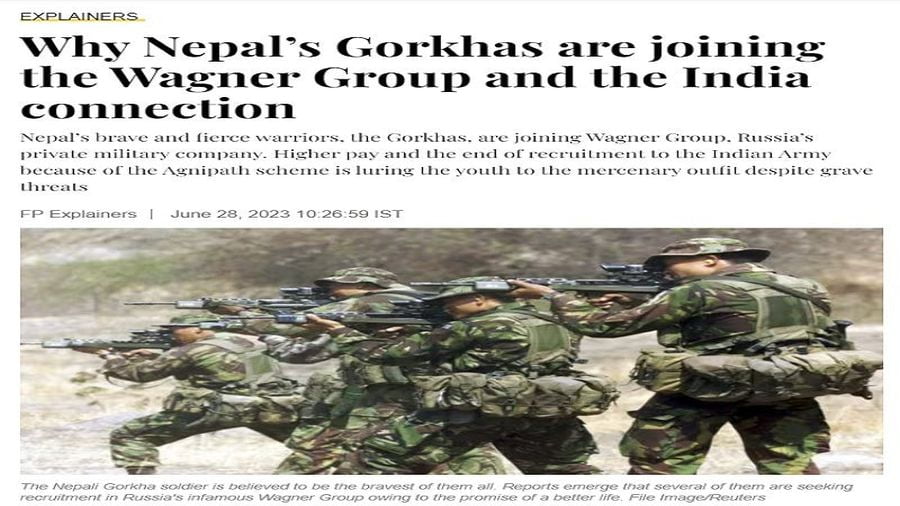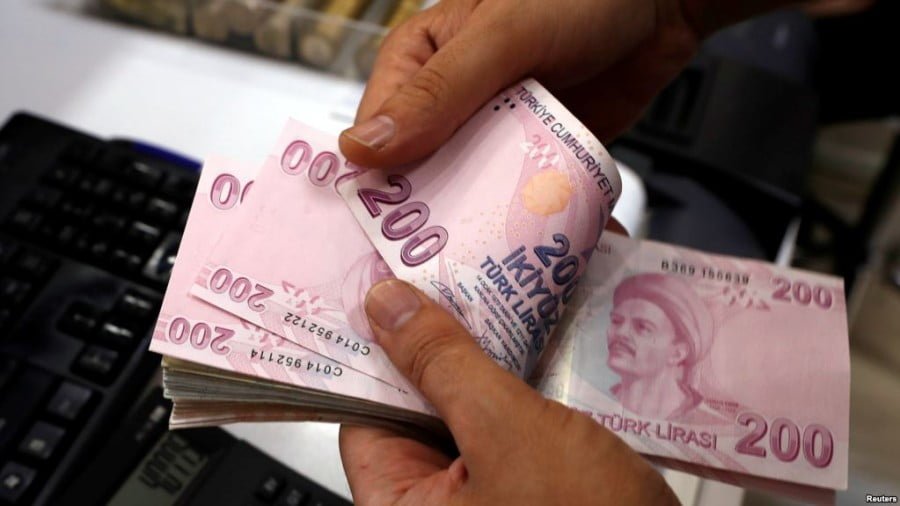Fake News Alert: Reports About Nepali Gorkhas Joining Wagner En Masse Are Suspicious
At best, regional media were confused by the DC-based Diplomat’s suspiciously timed piece or wanted to generate clickbait, while the worst-case scenario is that some are deliberately spreading disinformation.
South Asia has been hit by a fake news cyclone in recent days after reports began virally circulating about Nepali Gorkhas allegedly joining Wagner en masse. The DC-based magazine “The Diplomat” started this narrative trend on 17 June in their piece that amplified local reports about that country’s citizens who allegedly volunteered to join the Russian Armed Forces. This more popular outlet’s article didn’t mention Wagner, but it served the purpose of planting this general idea in its international audience’s minds.
After Prigozhin’s failed coup attempt last weekend, these reports were then picked up by regional media. Some might have been innocently confused into equating a statistically insignificant number of reported Gorkha recruits into the Russian Armed Forces with joining Wagner while others might have exploited that latter group’s newfound infamy for clickbait purposes. It also can’t be discounted that some of these outlets might even have ulterior motives related to sowing distrust between Russia and South Asia.
Their speculative intentions aside, there are three reasons to be suspicious of these reports. For starters, there’s a major legal difference between foreigners joining the Russian Armed Forces and them joining Wagner, especially in light of recent events that will likely result in the latter’s dissolution. Second, regardless of whichever of these two anyone abroad might have previously joined, they were almost certainly participating in the special operation and not fighting anywhere else unless they speak Russian.
This assessment is based on the fact that perfect interoperability between units isn’t required for holding back Kiev’s NATO–backed counteroffensive or pushing across the frontlines. By contrast, it’s a prerequisite for carrying out highly specialized tactical operations in the unconventional warfare environments that characterize Wagner’s activities in Africa and West Asia. With this in mind, all personnel from South Asia would have only fought in the special operation, not in Africa or West Asia.
The final reason to be suspicious of these latest reports is that they went viral in the immediate aftermath of Prigozhin’s failed coup attempt. Whether inadvertently due to the earlier mentioned reasons related to clickbait and confusion, or deliberately as a result of a Western intelligence operation, the proliferation of these reports in this sensitive context could cause problems between Russia and its South Asian partners who serve as one of the pillars of its non-Western strategy.
To explain, local governments might be misled into scrutinizing the activity of all Russians in their country if they fell for thinking that Wagner is recruiting their citizens, which could lead to discrimination if it gets out of control and thus damage bilateral relations. Likewise, some in Russia might be misled into thinking that local governments could be colluding with Wagner despite last weekend’s incident, which they might suspect is driven by anti-state purposes inspired by Western intelligence agencies.
These three points lend credence to the conclusion that the latest cyclone of reports about Nepali Gorkhas joining Wagner is inaccurate and inorganic since there’s no evidence of them being recruited en masse while there are reasons why foreign spy agencies would want this false claim to go viral. At best, regional media were confused by the DC-based Diplomat’s suspiciously timed piece or wanted to generate clickbait, while the worst-case scenario is that some are deliberately spreading disinformation.







